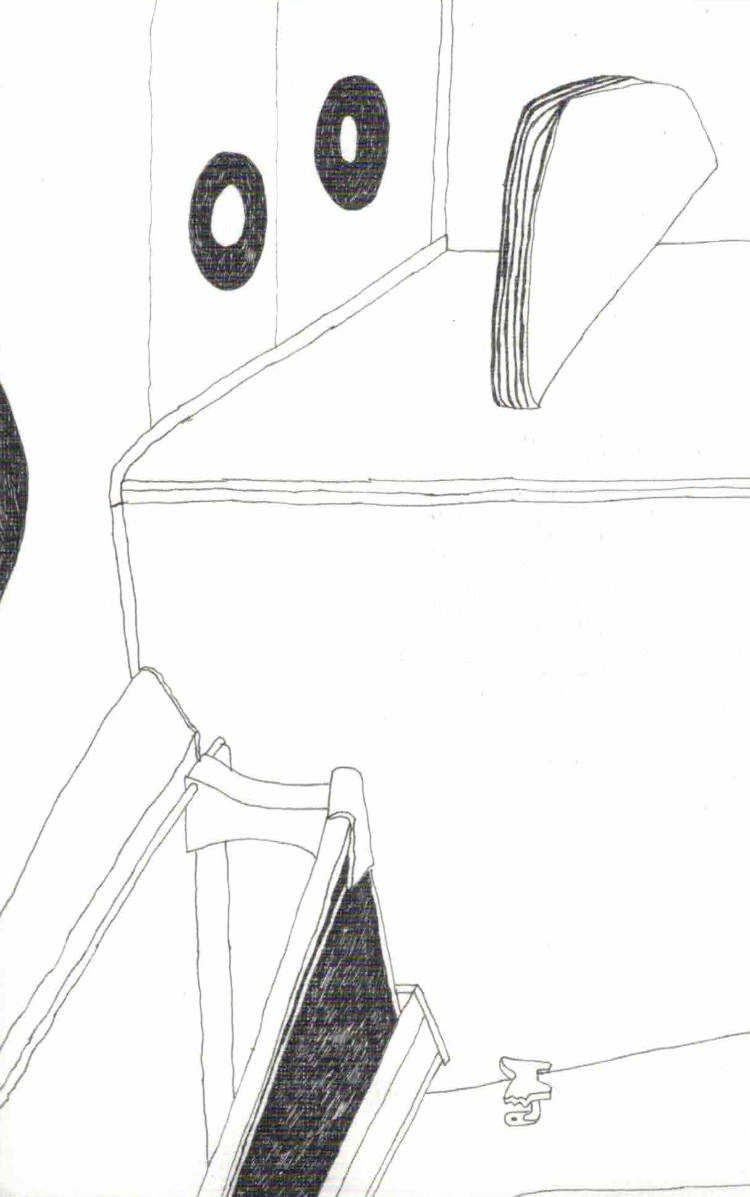
Retour
Retour is a book featuring a collection of drawings made on train journeys between Belgium and the Netherlands. It combines hand-written typography and train interiors, subtly highlighting cultural differences forming the countries’ border.

Retour is a book featuring a collection of drawings made on train journeys between Belgium and the Netherlands. It combines hand-written typography and train interiors, subtly highlighting cultural differences forming the countries’ border.
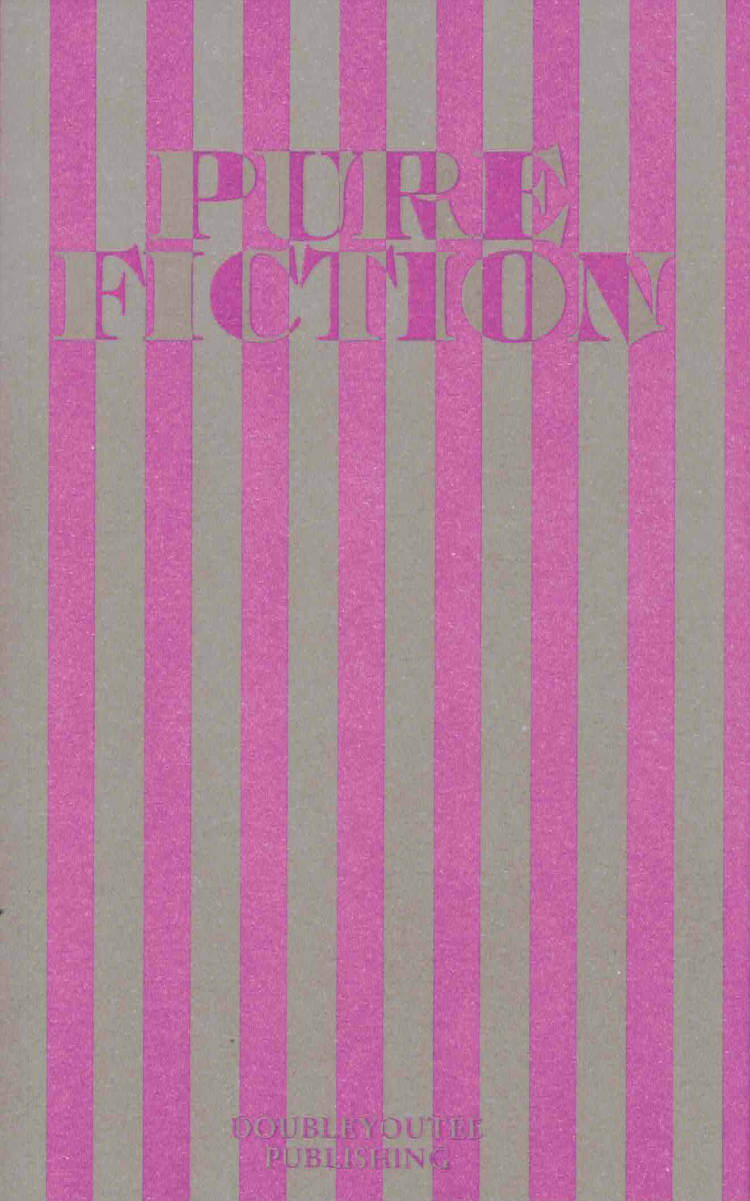
Pure fiction is a reader that examines how fiction-based writing and narrative building functions in contemporary artistic context.
Edited by Lisa Lagova and Manon Fraser with contributions by Susan Finlay, Manon Lutanie, Kristina Stallvik, Jonathan Blaschke, Nadia de Vries, Lisa Lagova, Ivan Cheng, Fadi Houmani, Nour Ben Saïd, Chris Kraus and Manon Fraser.

Hechtmappen bieden geen soelaas is wat overbleef na een vakantiejob waarbij de taakinhoud vooral bestond uit het verwijderen van nietjes uit verouderde documenten. Deze weken waren de bron voor fascinaties voor ongemakkelijke stiltes, gesprekken in liften, de diefstal van fluorescerende pennen en een ontplofte ventilator.
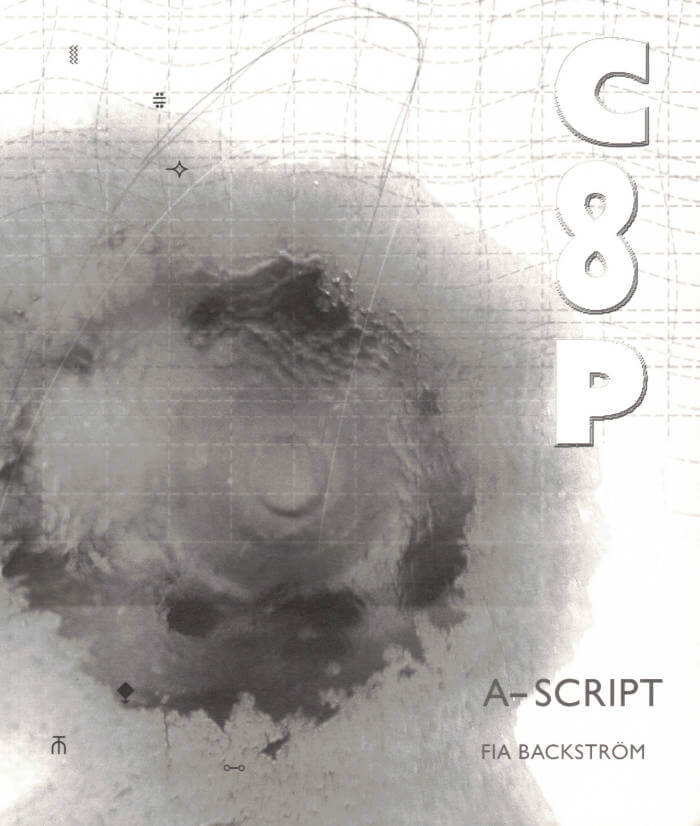
COOP documents Swedish artist Fia Backström's (born 1970) performances of two recent scripts, continuing her exploration of language, marketing, disorders and performance. The first script operates according to two distinct logics: a four-part linear base structure and text material that was chosen and read during the performance through chance movement of the performer's body across a grid.
This publication was especially designed to reflect this type of unpredictable and spontaneous movement. Mathematical symbols have been embedded into the text and these symbols link to ones on the upper corner of pages with nonlinear material. These indicate where the text could be inserted during a performance, thus incorporating the form of performance into the book. The second script serves as an epilogue to the first and was performed by four voices, reading from beginning to end without assigned lines, sometimes simultaneously.

This monograph covers more than fifty years of creation by Art & Language, whose artists are at the origin of conceptual art. Through unpublished texts by Matthew Jesse Jackson and Art & Language, a transcript of their opera libretto Victorine, and an interview with the artist collective, this publication questions their journey, and more broadly, the relationship between contemporary art and conceptual art.
The permanent collection of the Château de Montsoreau – Museum of Contemporary Art has grown to include 800 works from Art & Language. To celebrate this event, the museum produced a major exhibition and a publication titled Reality (Dark) Fragments (Light). The monograph and exhibition look back at 50 years of creation by these critical, provocative, subversive, punk art collective. They question the main issues involved in Art & Language's work: conversation as an artwork, description, transdiciplinarity, crisis in the relationship between the artist, the museum and the art gallery.
Edited by Marie-Caroline Chaudruc.
Foreword by Marie-Caroline Chaudruc.
Text by Matthew Jesse Jackson, interview with Art & Language by Victorine Meurent.

+|`me'S-pace, doc. 001.b is book 1, volume 2 of a wider, ongoing project known as "For Love Alone" Christina'S-tead, a poetic enquiry into the current state of the English tongue.
"In a time when many are questioning if we still need formalism and feminism, Wertheim's +|`me'S-pace, doc. 001.b is a spirited and fun defense of both. Written in part as a didactic instructional manual that cannot keep itself from constantly going astray into beautiful and challenging language play, this is a book that asks crucial questions and reconfigures recent histories. It is essential for its arguments. But even more, it is fun to read for its word play"—Juliana Spahr.
Introduction by Dodie Bellamy and art by Lisa Darms.
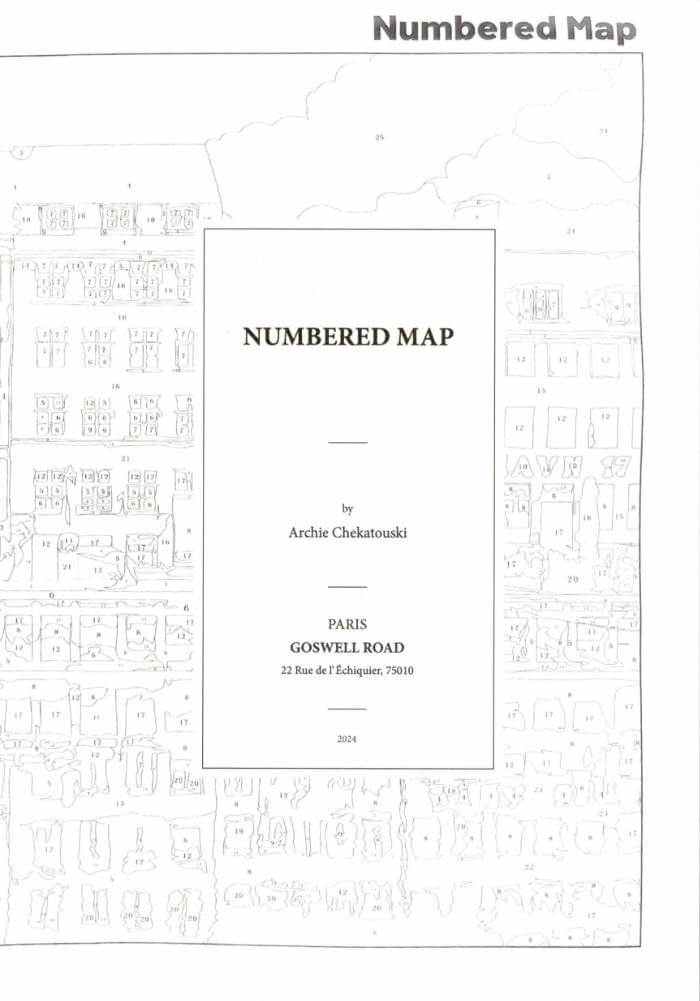
Goswell Road publishes ‘Numbered Map’ by Archie Chekatouski, to accompany his exhibition 'You can do so much more with a chair than you can with a painting?'. The publication is edited in 30 copies and focuses on Chekatouski’s Paint-by-numbers Series.
Bio: Archie Chekatouski (born 1996 in Minsk, Belarus) lives and works in Paris. His works are touchingly silly and beautifully simple.
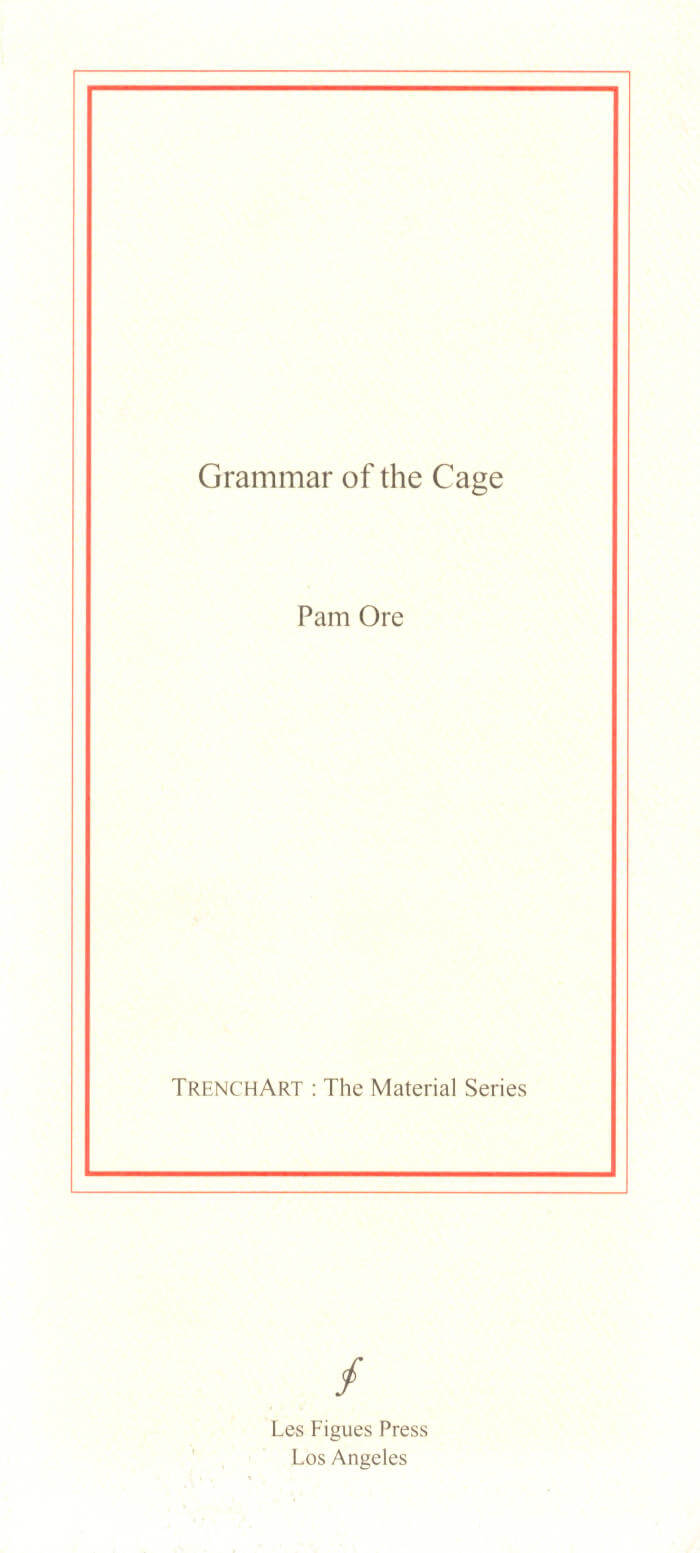
What words made this world of captivity and extinction? If written language is a biological adaptation, how can a text reshape the environment? These are the questions at the heart of Grammar of the Cage, a startling first collection of poetry by Pam Ore. The Compulsive Reader calls Ore "a poet of great promise," and poet Eloise Klein Healy says she has found Ore's book "haunting but necessary...a stunning debut collection."
Grammar of the Cage is clean and heartbreaking as a bone, and yet, as poet Ingrid Wendt writes in her Introduction, "[like] Emily Dickinson, Ore's 'business' is 'to sing.' And sing she does."